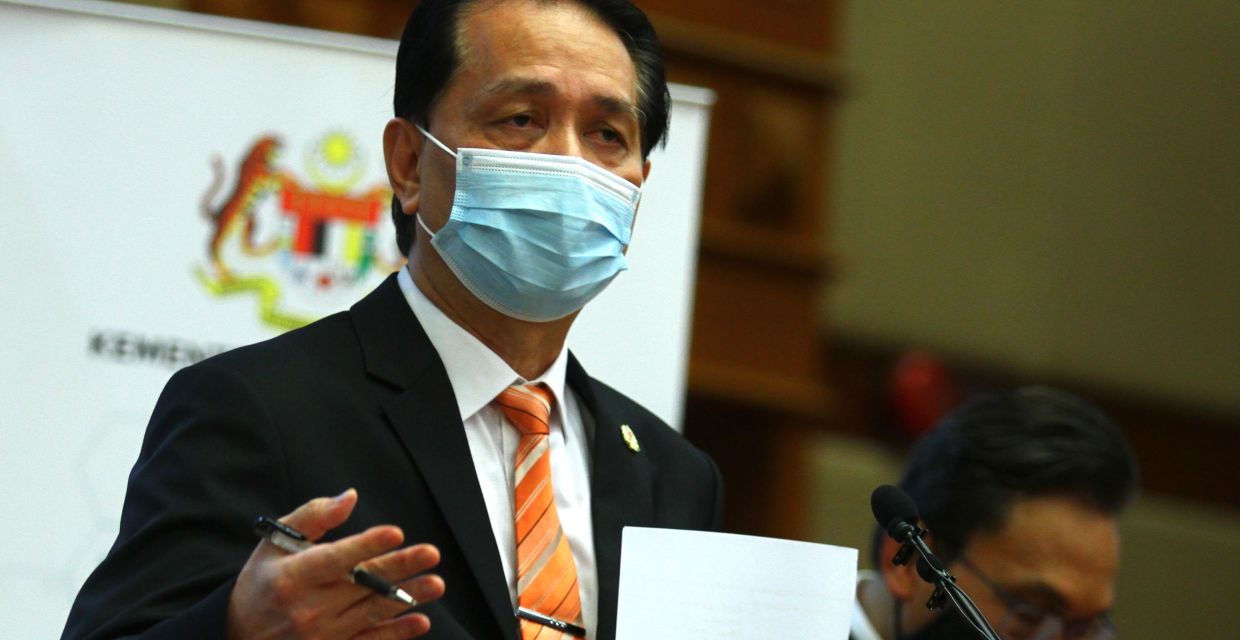Malaysia hits new high of 2,188 Covid-19 cases, with 74% from Selangor
Malaysia yesterday recorded 2,188 new Covid-19 cases, its highest daily figure ever recorded, with Selangor once again being the biggest contributor with 1,623 cases. To date, the total cases in the most populous state stood at 12,578. The spike of Covid-19 cases in Selangor came from the Teratai cluster — linked to Top Glove Corp Bhd’s worker dormitories — with 1,511 cases, according to Health director-general Tan Sri Dr Noor Hisham Abdullah. Sabah came in at second place with 232 cases, followed by Perak with 112 cases. Currently, 112 patients are being treated in intensive care units, with 49 of them needing respiratory assistance. Four more deaths were recorded, bringing the total deaths so far to 341. Malaysia’s total cases soared to 58,847, from just 31,548 as of Oct 31. (The Edge)
Elon Musk overtakes Bill Gates to grab world’s second-richest ranking
Elon Musk’s year of dizzying ascents hit a new apex on Nov 23 as the Tesla Inc co-founder passed Bill Gates to become the world’s second-richest person. The 49-year-old entrepreneur’s net worth soared US$7.2bil (RM29.45bil) to US$127.9bil (RM523.17bil), driven by yet another surge in Tesla’s share price. Musk has added US$100.3bil (RM410.28bil) to his net worth this year, the most of anyone on the Bloomberg Billionaires Index, a ranking of the world’s 500 richest people. In January he ranked 35th. His advance up the wealth ranks has been driven largely by Tesla, whose market value is approaching US$500bil (RM2.05 trillion). Musk’s milestone marks only the second time in the index’s eight-year history that Microsoft Corp co-founder Gates has ranked lower than number two. He held the top spot for years before being bumped by Amazon.com Inc founder Jeff Bezos in 2017. The year has been a lucrative one for the world’s richest people. Despite the pandemic and widespread layoffs that have disproportionately affected the world’s working class and poor, the members of the Bloomberg index have collectively gained 23% – or US$1.3 trillion (RM5.32 trillion) – since the year began. (The Star Online)

IRB CEO: Govt should consider introducing capital gains tax
Malaysia should consider implementing the capital gains tax, instead of the inheritance tax, said IRB CEO Datuk Seri Sabin Samitah. He said that while decisions to introduce new taxes lie with the government, it should look at implementing the capital gains tax as the inheritance tax may not have much impact on government revenue given its narrower structure. He noted that people in wealthier income brackets are more likely to have capital income, compared to those in lower-income groups. As such, revenue gained from such a tax can be used to address poverty and income inequality. Sabin explained that Malaysia’s existing tax structure base is already quite narrow as it is reliant on corporate income tax, personal income tax and petroleum tax, which has seen a slight drop due to oil price volatility. He also pointed out that tax planning and evasion are enabled in the absence of the capital gains tax. Sabin added that capital gains tax is important when it comes to taxation on cryptocurrency, intangible and other digital assets in the future. It would also help resolve issues related to the Real Property Gains Tax (RPGT), namely disputes concerning the categorisation of gains on property and valuation of shares in real property companies, he added. (The Edge)
Putrajaya likely to delay vote on Budget 2021
Voting on Budget 2021 could be delayed a week from Thursday, said government sources. They told The Straits Times the government was considering postponing the crucial vote to December 1, ostensibly because several ministries have not responded to matters raised by federal lawmakers during debate in Parliament. It is understood the process is already behind schedule, in large part due to the shortened daily sittings after a Covid-19 scare in Parliament. The vote on Budget 2021 is critical due to the Perikatan Nasional government’s slender majority in the legislature. By convention, a rejection of the federal Budget is considered a successful vote of no-confidence against the ruling party and should be met by the resignation of the entire Cabinet. Since its tabling on November 6, both government and Opposition lawmakers have questioned the allocations and priorities in Budget 2021. Among their demands include an extended loan moratorium, increased withdrawals from statutory retirement savings, and larger cash handouts. (Malay Mail)
New wholesale market for KL end of next year
A new and modern wholesale market is expected to be completed in Kuala Lumpur by the end of next year. Kuala Lumpur City Hall (DBKL) will decide on the finer details for the wholesale market by year end. Federal Territories Minister Tan Sri Annuar Musa said the local authority would consider several suggestions and hoped to find other ways to finance the project instead of relying on government funds. “We need a new modern wholesale market that is not labour intensive and relies on mechanisation, ” he said without revealing the location. The market, he said, must include a spacious trading area for a greater variety of goods and not be confined to the sale of fruits, vegetables and fish. Speaking on the current wholesale market, he said it would remain and be upgraded. The Jalan Ipoh wholesale market has been undergoing transformation for a few months, primarily aimed at getting rid of foreign traders and workers as well as to clean-up its image while giving it a brighter appeal. The minister said workers were required to use uniforms to identify them based on their area of trade. (The Star Online)





